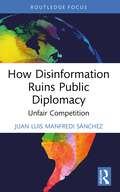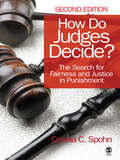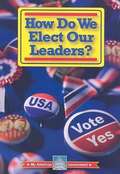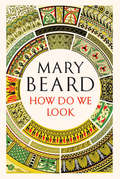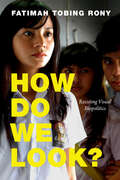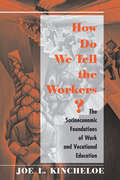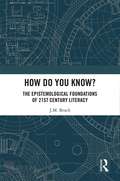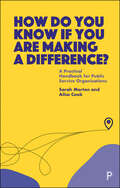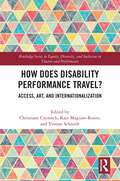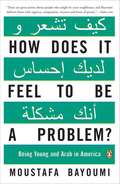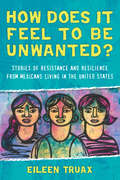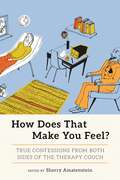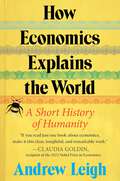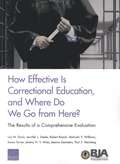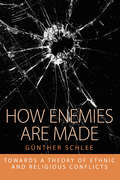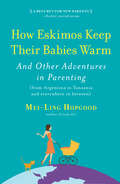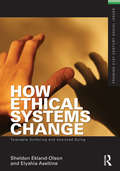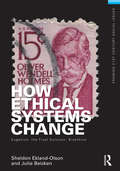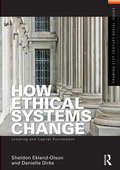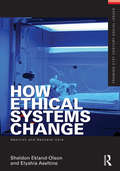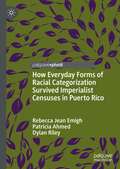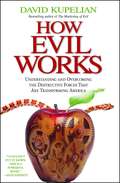- Table View
- List View
How Disinformation Ruins Public Diplomacy: Unfair Competition (Politics, Media and Political Communication)
by Juan Luis Manfredi SánchezHow Disinformation Ruins Public Diplomacy evaluates and analyzes how Chinese and Russian public diplomacy strategies differ from the existing academic literature and debates, specifically in the context of the new disinformation era.In the context of mediatized public diplomacy, disinformation, and deglobalization, this book asks: do China, Russia, and new emerging powers take advantage by employing values and techniques attributed to public diplomacy? What if goals (dialogue and cooperation) are settled on an unfair basis (false content, meddling, and institutional erosion)? Can their repertoire of actions be considered public diplomacy? And if their initiatives are not public diplomacy, what impact do their actions have on the theoretical construction of the discipline? While using China and Russia as the two main case studies in order to develop a new theory, this book covers other relevant cases on the management of public diplomacy for other purposes. The case of Turkey provides a model of transformation and adaptation of public diplomacy, with Erdogan's hyper-leadership built on anti-Western rhetoric and the emergence of a new Ottomanism. The case of India explores Modi’s creation of an ethnically-branded democracy which places Hinduism at the heart of political decisions. In the case of Morocco, its positioning in religious dialogue, the establishment of relations and political normalization with Israel, and territorial unity (Western Sahara) are explored.Exploring how authoritarian powers abuse the global disinformation order to achieve their public diplomacy goals, this book will be of great interest to students and scholars of international relations, politics, public diplomacy, communication studies, and social theory. In the professional sphere it will also appeal to politicians, diplomats, foreign policy makers, think-tanks, journalists, and foreign correspondents.
How Do Judges Decide?: The Search for Fairness and Justice in Punishment
by Cassia C. SpohnHow are sentences for federal, state, and local crimes determined? Is this process fairly and justly applied to all concerned? How have reforms affected the process over the last 25 years? Offering a comprehensive overview of the sentencing process in the United States, How Do Judges Decide? The Search for Fairness and Justice in Punishment explores these questions and more. Author Cassia Spohn first discusses the overall concept of punishment and then analyzes individual aspects of it, including the sentencing process, the responsibility of the judge, and disparity and discrimination in sentencing. This Second Edition offers new information on the impact of sentencing reforms, including recent research and case law, updated statistics in tables and figures, and new boxed highlights. Key Features Helps students understand patterns in the wide discretion and latitude given to judges when determining penalties within the framework of the U.S. judicial system Engages the reader with "Focus on an Issue" sections, which analyze key issues such as gender and sentencing (Ch.4) and the impact of race on sentencing for drug offenses (Ch.5) Examines sentencing reforms and their impact, providing students with up-to-date information on how punishment is meted out in U.S. courts. Contains boxed excerpts in each chapter from books and articles, with a variety of case studies on topics such as the O.J. Simpson murder trial, judicial surveys, and comparison of sentences in different jurisdictions by gender Offers new material on specialty courts and the prosecutor's role in sentencing Concludes each chapter with discussion questions How Do Judges Decide? is an ideal text for upper-division undergraduate and graduate courses on the judicial system, criminal law, and law and society.
How Do We Elect Our Leaders? (My American Government)
by William David ThomasIn what ways are the branches of government like a basketball game? How can a school yard game's rules liken themselves to a constitution? Through engaging analogies and introductions, our new government series gets students ready for election 2008. Correlated to the fourth and fifth grade social studies curriculum, My American Government introduces students to how our government works. Students learn about the U.S. Constitution, the branches of government, citizens' basic rights, and how we elect our leaders.
How Do We Look: The Body, The Divine, And The Question Of Civilization
by Mary BeardFrom prehistoric Mexico to modern Istanbul, Mary Beard looks beyond the familiar canon of Western imagery to explore the history of art, religion, and humanity. Conceived as a gorgeously illustrated accompaniment to “How Do We Look” and “The Eye of Faith,” the famed Civilisations shows on PBS, renowned classicist Mary Beard has created this elegant volume on how we have looked at art. Focusing in Part I on the Olmec heads of early Mesoamerica, the colossal statues of the pharaoh Amenhotep III, and the nudes of classical Greece, Beard explores the power, hierarchy, and gender politics of the art of the ancient world, and explains how it came to define the so-called civilized world. In Part II, Beard chronicles some of the most breathtaking religious imagery ever made—whether at Angkor Wat, Ravenna, Venice, or in the art of Jewish and Islamic calligraphers— to show how all religions, ancient and modern, have faced irreconcilable problems in trying to picture the divine. With this classic volume, Beard redefines the Western-and male-centric legacies of Ernst Gombrich and Kenneth Clark.
How Do We Look?: Resisting Visual Biopolitics (a Camera Obscura book)
by Fatimah Tobing RonyIn How Do We Look? Fatimah Tobing Rony draws on transnational images of Indonesian women as a way to theorize what she calls visual biopolitics—the ways visual representation determines which lives are made to matter more than others. Rony outlines the mechanisms of visual biopolitics by examining Paul Gauguin’s 1893 portrait of Annah la Javanaise—a trafficked thirteen-year-old girl found wandering the streets of Paris—as well as US ethnographic and documentary films. In each instance, the figure of the Indonesian woman is inextricably tied to discourses of primitivism, savagery, colonialism, exoticism, and genocide. Rony also focuses on acts of resistance to visual biopolitics in film, writing, and photography. These works, such as Rachmi Diyah Larasati’s The Dance that Makes You Vanish, Vincent Monnikendam’s Mother Dao (1995), and the collaborative films of Nia Dinata, challenge the naturalized methods of seeing that justify exploitation, dehumanization, and early death of people of color. By theorizing the mechanisms of visual biopolitics, Rony elucidates both its violence and its vulnerability.
How Do We Tell The Workers?: The Socioeconomic Foundations Of Work And Vocational Education
by Joe KincheloeThis book analyzes the ways that workers are educated," via a variety of institutions, to fit into the contemporary labour-unfriendly economic system. As he examines the history and purposes of vocational education, Kincheloe illustrates the manner in which this education shapes the politics of the era. How Do We Tell the Workers? is important reading for policy makers, labour leaders, and educators.
How Do You Know?: The Epistemological Foundations of 21st Century Literacy
by J.M. BeachThis book defines the concept and practices of literacy through a discussion of knowledge, information media, culture, subjectivity, science, communication, and politics. Examining the ways in which the spread of literacy and education have caused culture wars in pluralist societies since the 16th century, the author reviews an interdisciplinary array of scholarly literature to contend that science, and more broadly evidence-based inductive arguments, offer the only reliable source information, and the only peaceful solution to cultural conflict in the 21st century. With a focus on the multifaceted practice of literacy-as-communication as embedded within larger social and political processes, this book offers a comprehensive study of literacy through five core topics: knowledge, psychology, culture, science, and arguing over truth in pluralist democracies. The central thesis of the book argues that we require a new literacy that incorporates reading and writing with advanced cognitive and epistemological skills. Today’s citizens need to be able to understand the basic cognitive and cultural processes through which knowledge is created, and they need to know how to evaluate knowledge, peacefully debate knowledge, and productively use knowledge, for both personal decisions and public policy. How Do You Know? The Epistemological Foundations of 21st Century Literacy is an interdisciplinary study that will appeal to scholars across the sciences and humanities, especially those concerned with pedagogy and the science of learning.
How Do You Know If You Are Making a Difference?: A Practical Handbook for Public Service Organisations
by Sarah Morton Ailsa CookWhy is it hard to know if you are making a difference in public services? What can you do about it? Public services throughout the world face the challenge of tackling complex issues where multiple factors influence change. This book sets out practical and theoretically robust, tried and tested approaches to understanding and tracking change that any organisation can use to ensure it makes a difference to the people it cares about. With case studies from health, community, research, international development and social care, this book shows that with the right tools and techniques, public services can track their contribution to social change and become more efficient and effective.
How Does Disability Performance Travel?: Access, Art, and Internationalization (Routledge Series in Equity, Diversity, and Inclusion in Theatre and Performance)
by Christiane Czymoch Kate Maguire-Rosier Yvonne SchmidtThis edited collection investigates the myriad ways in which disability performance travels in a globalized world. Disability arts festivals are growing in different parts of the world; theatre and dance companies with disabled artists are increasingly touring and collaborating with international partners. At the same time, theatre spaces are often not accessible, and the necessity of mobility excludes some disabled artists from being part of an international disability arts community. How does disability performance travel, who does not travel – and why? What is the role of funding and producing structures, disability arts festivals and networks around the world? How do the logics of international (co-)producing govern the way in which disability art is represented internationally? Who is excluded from being part of a touring theatre or dance company, and how can festivals, conferences, and other agents of a growing disability culture create other forms of participation, which are not limited to physical co-presence? This study will contextualize disability aesthetics, arts, media, and culture in a global frame, yet firmly rooted in its smaller national, state, and local community settings and will be of great interest to students and scholars in the field.
How Does It Feel to Be a Problem? Being Young and Arab In America
by Moustafa BayoumiAn eye-opening look at how young Arab- and Muslim-Americans are forging lives for themselves in a country that often mistakes them for the enemy. Just over a century ago, W. E. B. Du Bois posed a probing question in his classic The Souls of Black Folk: How does it feel to be a problem? Now, Moustafa Bayoumi asks the same about America's new "problem"--Arab- and Muslim-Americans. Bayoumi takes readers into the lives of seven twenty-somethings living in Brooklyn, home to the largest Arab-American population in the United States. He moves beyond stereotypes and clichés to reveal their often unseen struggles, from being subjected to government surveillance to the indignities of workplace discrimination. Through it all, these young men and women persevere through triumphs and setbacks as they help weave the tapestry of a new society that is, at its heart, purely American.
How Does It Feel to Be Old?
by Norma FarberA very old grandmother tells her young granddaughter the positives and negatives of being old. The telling is in rhyme. Descriptions of illustrations included. A short book, very comforting about old age.
How Does It Feel to Be Unwanted?: Stories of Resistance and Resilience from Mexicans Living in the United States
by Eileen Truax Diane StockwellIn an era of increasing anti-immigrant sentiment and bigotry, each of these 13 stories illuminates the issues affecting the Mexican community and shows the breadth of a frequently stereotyped population.Dreamers and their allies, those who care about immigration justice, and anyone interested in the experience of Mexicans in the US will respond to these stories of Mexican immigrants (some documented, some not) illuminating their complex lives. Regardless of status, many are subjected to rights violations, inequality, and violence--all of which existed well before the Trump administration--and have profound feelings of being unwanted in the country they call home. There's Monica Robles, the undocumented mother of three US citizens who is literally confined to a strip of territory between two checkpoints--one at the Mexico border and one twenty-seven miles north of the border. We meet Jeanette Vizguerra, who came to symbolize the sanctuary movement when she took shelter in a Denver church in February 2017 to avoid deportation. (Later that year, Time magazine named her one of the one hundred most influential people in the world.) There's Daniel Rodriguez, the first undocumented immigration lawyer in Arizona to successfully obtain a license to practice. Alberto Mendoza, who suffered persecution as a gay man for years, in 2013 founded Honor 41, a national Latina/o LGBTQ organization that promotes positive images of their community. After crossing the border illegally with his mother as a child, Al Labrada later joined the military to get on a path to citizenship; in March 2017, he was promoted to captain in the Los Angeles Police Department. These and eight other stories will broaden how you think about Mexicans in America.
How Does That Make You Feel?: True Confessions from Both Sides of the Therapy Couch
by Sherry AmatensteinHow Does That Make You Feel? obliterates the boundaries between the shrink and the one being shrunk with unabashedly candid writers breaking confidentiality and telling all about their experiences in therapy. This revelatory, no-punches-pulled book brings to light both sides of the "relationship” between therapist and client-a bond that can feel pure and profound, even if it is, at times, illusory. Contributors include an array of essayists, authors, TV/film writers and therapists, including Patti Davis, Beverly Donofrio, Royal Young, Molly Peacock, Susan Shapiro, Charlie Rubin, Estelle Erasmus, and Dennis Palumbo. Full list of contributors: Sherry Amatenstein Laura Bogart Martha Crawford Patti Davis Megan Devine Beverly Donofrio Janice Eidus Estelle Erasmus Juli Fraga Nina Gaby Mindy Greenstein Jenine Holmes Diane Josefowicz Jean Kim Amy Klein Binnie Klein Anna March Allison McCarthy Kurt Nemes Dennis Palumbo Molly Peacock Pamela Rafalow Grossman Charlie Rubin Jonathan Schiff Barbara Schoichet Adam Sexton Susan Shapiro Beth Sloan Eve Tate Kate Walter Priscilla Warner Linda Yellin Royal Young Jessica Zucker
How Economics Explains the World: A Short History of Humanity
by Andrew Leigh“If you read just one book about economics, make it Andrew Leigh's clear, insightful, and remarkable (and short) work.” —Claudia Goldin, recipient of the 2023 Nobel Prize in Economics and Henry Lee Professor of Economics at Harvard UniversityA sweeping, engrossing history of how economic forces have shaped the world—all in under 200 pagesIn How Economics Explains the World, Harvard-trained economist Andrew Leigh presents a new way to understand the human story. From the dawn of agriculture to AI, here is story of how ingenuity, greed, and desire for betterment have, to an astonishing degree, determined our past, present, and future. This small book indeed tells a big story. It is the story of capitalism – of how our market system developed. It is the story of the discipline of economics, and some of the key figures who formed it. And it is the story of how economic forces have shaped world history. Why didn’t Africa colonize Europe instead of the other way around? What happened when countries erected trade and immigration barriers in the 1930s? Why did the Allies win World War II? Why did inequality in many advanced countries fall during the 1950s and 1960s? How did property rights drive China’s growth surge in the 1980s? How does climate change threaten our future prosperity? You’ll find answers to these questions and more in How Economics Explains the World.
How Effective Is Correctional Education, and Where Do We Go from Here?: The Results of a Comprehensive Evaluation
by Lois M. Davis Jennifer L. Steele Robert Bozick Malcolm V. Williams Susan Turner Jeremy N. V. Miles Jessica Saunders Paul S. SteinbergThis report assesses the effectiveness of correctional education programs for both incarcerated adults and juveniles and the cost-effectiveness of adult correctional education. It also provides results of a survey of U. S. state correctional education directors that give an up-to-date picture of what correctional education looks like today. Finally, the authors offer recommendations for improving the field of correctional education moving forward.
How Enemies Are Made
by Günther SchleeIn popular perception cultural differences or ethnic affiliation are factors that cause conflict or political fragmentation although this is not borne out by historical evidence. This book puts forward an alternative conflict theory. The author develops a decision theory which explains the conditions under which differing types of identification are preferred. Group identification is linked to competition for resources like water, territory, oil, political charges, or other advantages. Rivalry for resources can cause conflicts but it does not explain who takes whose side in a conflict situation. This book explores possibilities of reducing violent conflicts and ends with a case study, based on personal experience of the author, of conflict resolution.
How Eskimos Keep Their Babies Warm: And Other Adventures in Parenting (from Argentina to Tanzania and Everywhere in Between)
by Mei-Ling HopgoodA “breezy and entertaining” tour of parenting practices around the world that shows there’s more than one way to diaper a baby (The Boston Globe). Mei-Ling Hopgood, a first-time mom from suburban Michigan—now living in Buenos Aires—was shocked that Argentine parents allowed their children to stay up until all hours of the night. Could there really be social and developmental advantages to this custom? Driven by a journalist’s curiosity (and a new mother’s desperation for answers), Hopgood embarked on a journey to learn how other cultures approach the challenges all parents face: bedtimes, toilet training, feeding, teaching, and more. Observing parents around the globe and interviewing anthropologists, educators, and child-care experts, she discovered a world of new ideas. The Chinese excel at potty training, teaching their wee ones as young as six months old. Kenyans wear their babies in colorful cloth slings—not only is it part of their cultural heritage, but strollers seem outright silly on Nairobi’s chaotic sidewalks. And the French are experts at turning their babies into healthy, adventurous eaters. Hopgood tested her discoveries on her spirited toddler, Sofia, with some enlightening results. This look at the ways other cultures raise children offers parents the option of experimenting with tried and true methods—and reveals that there are a surprising number of ways to be a good parent. “Hopgood is charmingly self-deprecating about her own mothering of the formidable Sofia, who emerges as a sassy character in her own right.” —The Boston Globe “A best bet for new parents.” —Booklist, starred review
How Ethical Systems Change: Tolerable Suffering And Assisted Dying (Framing 21st Century Social Issues)
by Sheldon Ekland-Olson Elyshia AseltineMedical advances prolong life. They also sometimes prolong suffering. Should we protect life or alleviate suffering? This dilemma formed the foundation for a powerful right-to-die movement and a counterbalancing concern over an emerging culture of death. What are the qualities of a life worth living? Where are the boundaries of tolerable suffering? This book is based on a hugely popular undergraduate course taught at the University of Texas, and is ideal for those interested in the social construction of social worth, social problems, and social movements. This book is part of a larger text, Who Lives, Who Dies, Who Decides?, http://www.routledge.com/9780415892476/
How Ethical Systems Change: Eugenics, the Final Solution, Bioethics (Framing 21st Century Social Issues)
by Sheldon Ekland-Olson Julie BeickenMandatory sterilization laws enacted in dozens of states coast-to-coast and approved by the U.S. Supreme Court formed the initial pillar for what became the Final Solution. Following WWII, there was renewed interest in a more inclusive view of social worth and the autonomy of the individual. Social movements were launched to secure broad-based revisions in civil and human rights. This book is based on a hugely popular undergraduate course taught at the University of Texas, and is ideal for those interested in science-based policy, the social construction of social worth, social problems, and social movements. This book is an excerpt from a larger text, Who Lives, Who Dies, Who Decides?, http://www.routledge.com/9780415892476/
How Ethical Systems Change: Lynching And Capital Punishment (Framing 21st Century Social Issues)
by Sheldon Ekland-Olson Danielle DirksSlavery, lynching and capital punishment were interwoven in the United States and by the mid-twentieth century these connections gave rise to a small but well-focused reform movement. Biased and perfunctory procedures were replaced by prolonged trials and appeals, which some found messy and meaningless; DNA profiling clearly established innocent persons had been sentenced to death. The debate over taking life to protect life continues; this book is based on a hugely popular undergraduate course taught at the University of Texas, and is ideal for those interested in criminal justice, social problems, social inequality, and social movements. This book is an excerpt from a larger text, Who Lives, Who Dies, Who Decides?, http://www.routledge.com/9780415892476/
How Ethical Systems Change: Abortion and Neonatal Care (Framing 21st Century Social Issues)
by Sheldon Ekland-Olson Elyshia AseltineRoe v. Wade came like a bolt from the blue, but support had been building for years. For many, the idea that life in the womb was not fully protected under the Constitution was simply not acceptable. Political campaigns were organized and protests launched, including the bombing of clinics and the killing of abortion providers. Questions about the protection and support of life continued after birth. This book is based on a hugely popular undergraduate course taught at the University of Texas, and is ideal for those interested in the social construction of social worth, social problems, and social movements. This book is part of a larger text, Who Lives, Who Dies, Who Decides?, http://www.routledge.com/books/details/9780415892476/
How Everyday Forms of Racial Categorization Survived Imperialist Censuses in Puerto Rico
by Rebecca Jean Emigh Patricia Ahmed Dylan RileyThis book examines the history of racial classifications in Puerto Rico censuses, starting with the Spanish censuses and continuing through the US ones. Because Puerto Rican censuses were collected regularly over hundreds of years, they are fascinating “test cases” to see what census categories might have been available and effective in shaping everyday ones. Published twentieth-century censuses have been well studied, but this book also examines unpublished documents in previous centuries to understand the historical precursors of contemporary ones. State-centered theories hypothesize that censuses, especially colonial ones, have powerful transformative effects. In contrast, this book shows that such transformations are affected by the power and interests of social actors, not the strength of the state. Thus, despite hundreds of years of exposure to the official dichotomous and trichotomous census categories, these categories never replaced the continuous everyday ones because the census categories rarely coincided with Puerto Rican’s interests.
How Evil Works: Understanding and Overcoming the Destructive Forces That Are Transforming America
by David KupelianDavid Kupelian, veteran journalist and bestselling author of The Marketing of Evil, probes the millennia-old questions of evil--what it is, how it works, and why it so routinely and effortlessly ruins our lives--once again demonstrating his uncanny knack for demystifying complex, elusive, and intimidating subjects with fresh insights into the hidden mechanisms of seduction, corruption, religion, and power politics. Analyzing today's most electrifying news stories and hot-button topics, Kupelian explores such profoundly troubling questions asWhy are big lies more believable than little ones?How does terrorism really work?Why do so many celebrities who "have it all" end up self-destructing?Why are boys doing worse in school today than girls?Why do we treat the problems of anger and depression with drugs?. . . and much more. Fortunately, once we really understand "how evil works"--both in our own lives and in the world at large--evil loses much of its power and the way out becomes more clear.
How Evil Works
by David KupelianDavid Kupelian, veteran journalist and bestselling author of The Marketing of Evil, probes the millennia-old questions of evil--what it is, how it works, and why it so routinely and effortlessly ruins our lives--once again demonstrating his uncanny knack for demystifying complex, elusive, and intimidating subjects with fresh insights into the hidden mechanisms of seduction, corruption, religion, and power politics. Analyzing today's most electrifying news stories and hot-button topics, Kupelian explores such profoundly troubling questions asWhy are big lies more believable than little ones?How does terrorism really work?Why do so many celebrities who "have it all" end up self-destructing?Why are boys doing worse in school today than girls?Why do we treat the problems of anger and depression with drugs?. . . and much more. Fortunately, once we really understand "how evil works"--both in our own lives and in the world at large--evil loses much of its power and the way out becomes more clear.
How Far Have We Come in Reducing Health Disparities?
by Karen M. AndersonAt the turn of the 21st century, several important reports and events designed to raise awareness of health disparities and to describe initial efforts to reduce health disparities took place. The Surgeon General's office released several reports that showed dramatic disparities in tobacco use and access to mental health services by race and ethnicity. The first real legislation focused on reducing health disparities was signed into law, creating the National Center for Minority Health and Health Disparities within the NIH. In 2001, the IOM released its landmark report, Crossing the Quality Chasm: A New Health System for the 21st Century, highlighting the importance of a focus on health care quality rather than a focus on only access and cost issues. Building upon these reports and events, the IOM held a workshop on April 8, 2010, that discussed progress to address health disparities and focused on the success of various federal initiatives to reduce health disparities. How Far Have We Come in Reducing Health Disparities? summarizes the workshop and explains the progress in the field since 2000.
